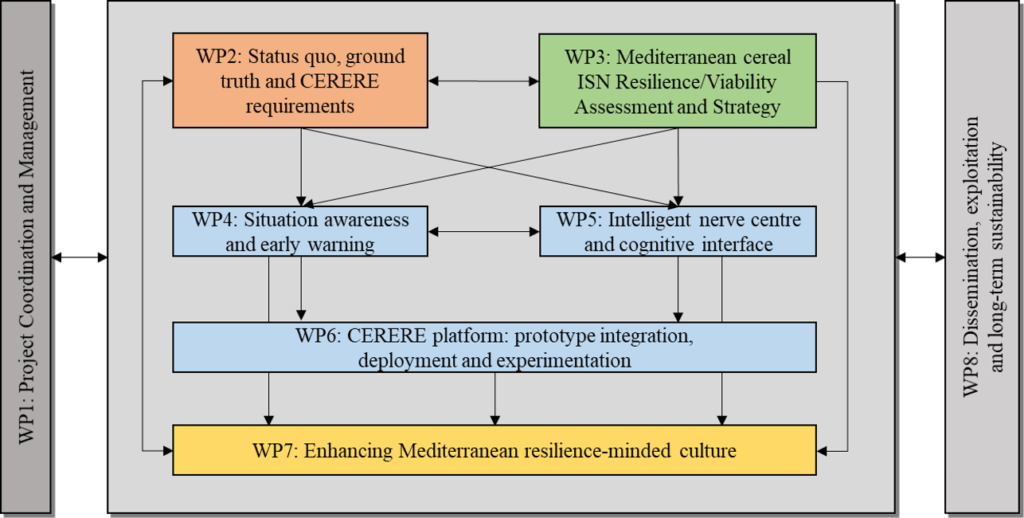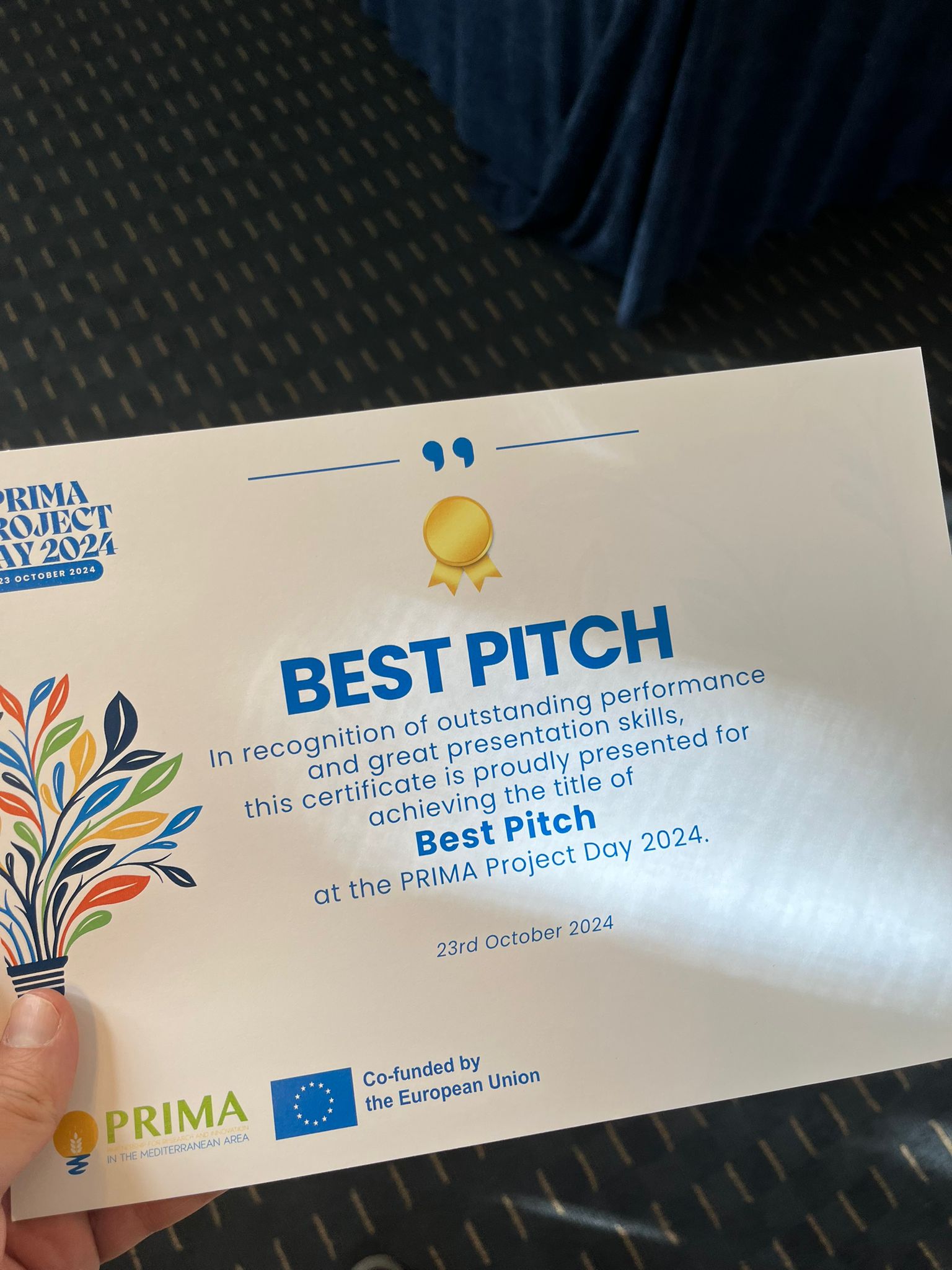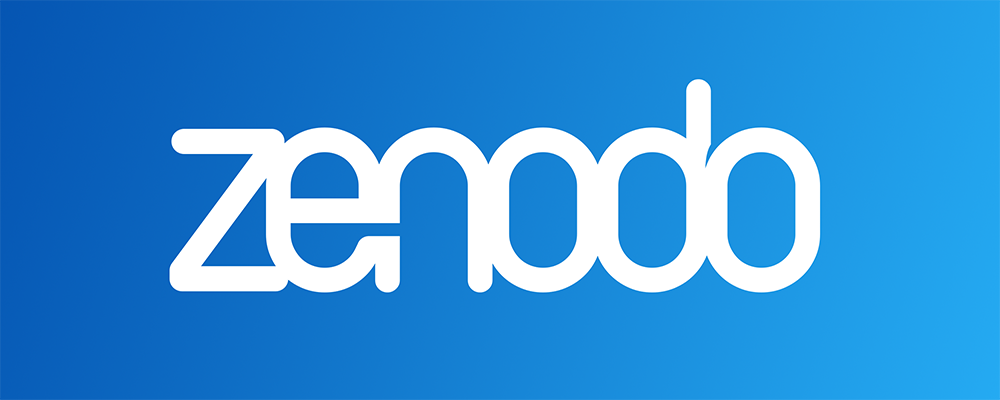A multidimensional approach to enhance supply chain resilience and viability
about the project
As the frequency and magnitude of global supply chain disruptions increase, organisations and individuals need to consider a novel range of options to build resilience and to ensure viability. CERERE is based on four established principles, which represent critical aspects that individuals and organisations (regardless of their size) must focus on to become disruption-proof: 1) productivity monitoring and demand forecasting; 2) threat prediction and continuous risk assessment; 3) collaboration and agile procurement/distribution; 4) intelligent and semi-automated orchestration.
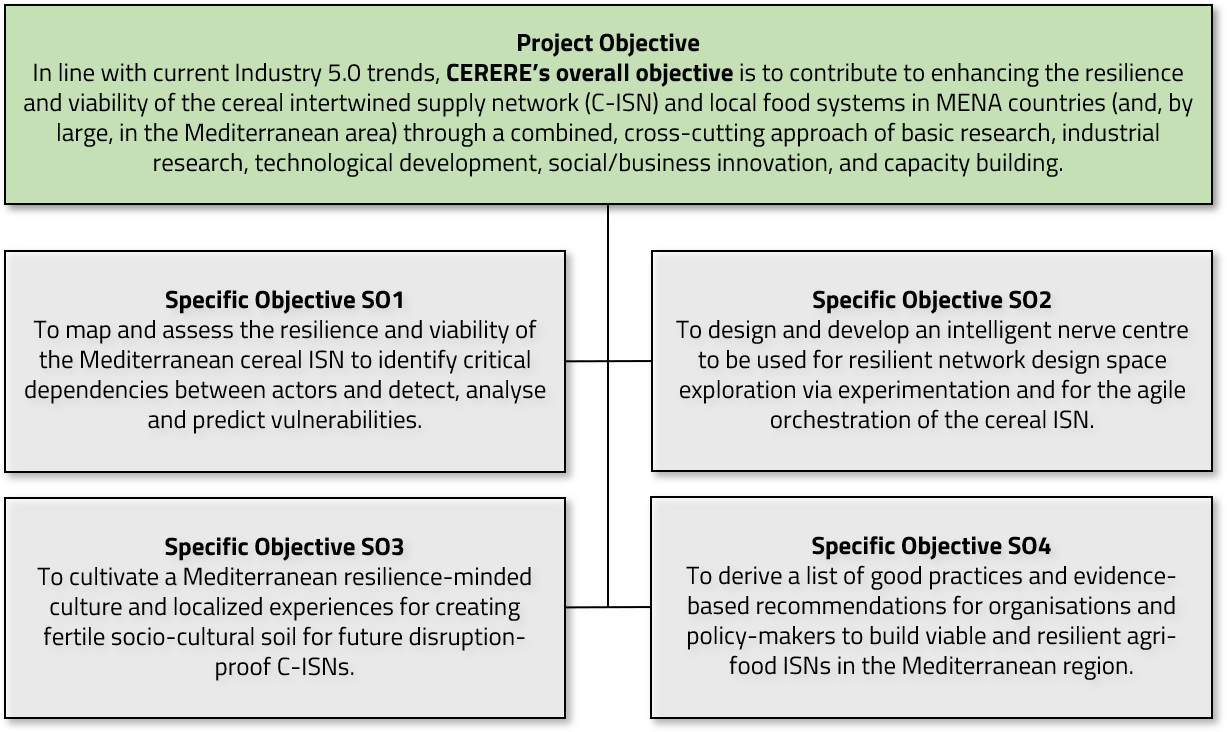

Timeline: 1 June 2024 – 31 May 2027
latest news
New Paper! Comparative analysis of product and network supply chain resilience
Best Pitch Award at the PRIMA Projects Day in Barcelona
CERERE Project Engages in Cross-Fertilization Session at La Laguna University
CERERE – TERRA MADRE Event
The research team as a whole
the consortium
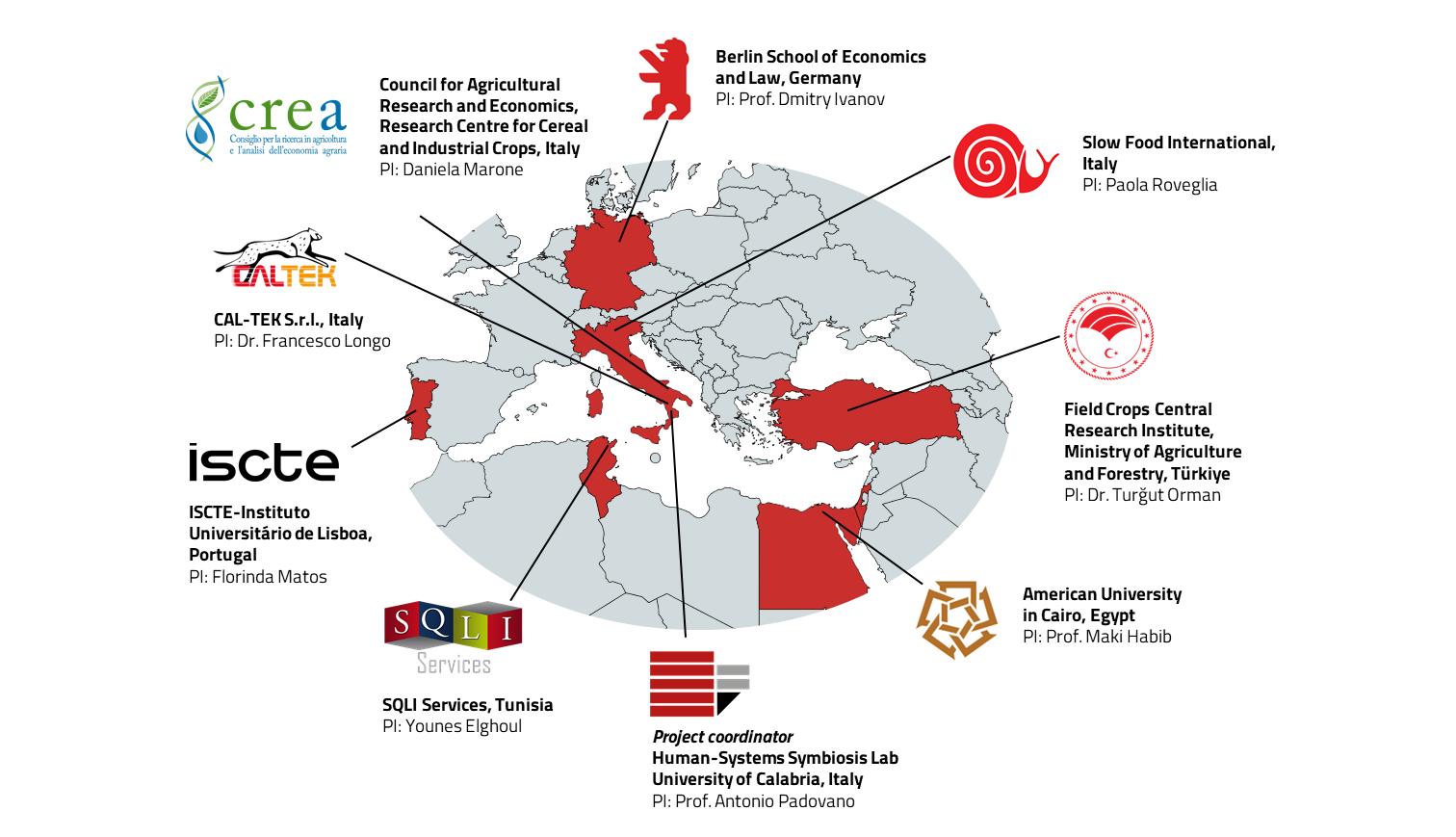
External Advisory Board
Simone Di Domenico – xFARM (Italy)
Ilya Jackson – Massachusetts Institute of Technology (USA)
David Romero – Tecnológico de Monterrey (Mexico)
Benvindo Maçãs – National Institute of Agricultural and Veterinary Research (Portugal)
activities & work plan
CERERE approaches resilience and viability as a multidimensional concept, structured around four key pillars: people, product, process, and technology. Each of these pillars is essential in building a robust and adaptive system for the Mediterranean cereal supply chain (C-ISN).
The technology pillar will see the development of a software-as-a-service (SaaS) solution built on FIWARE, an open-source platform designed to support smart agriculture. This solution will integrate an early warning system for predicting vulnerabilities in the supply network by merging real and simulated data. It will use a distributed data fabric architecture to connect multiple data sources, creating an e-living lab and observatory to monitor the cereal supply chain. A key feature is the inclusion of a situation awareness module, built on models for predicting supply chain risks and vulnerabilities. Additionally, a starter kit for Smart Farming, based on Internet of Things (IoT) technologies, will make it easier for new farmers and smallholders to join the CERERE network. To ensure inclusivity, a localized mobile/web application will allow individuals and organizations with limited digital skills or infrastructure to participate in this digital ecosystem.
The technological advancements will be complemented by an AI-based intelligent nerve center, which will orchestrate the cereal supply chain network with agility. This nerve center will integrate a persistent simulation-based digital twin and an AI-driven recommendation system based on trustworthy, ethical AI models. A cognitive human interface will provide users with situational awareness, helping them make informed decisions.
Supporting this, the process pillar leverages detailed knowledge of the supply chain to identify and map risk factors that affect cereal production and distribution. By doing so, it aims to design and implement systems for detecting disruptions and vulnerabilities in an automated manner. This pillar will also serve as the foundation for the rules and plans that guide the technological system, such as mitigation strategies and actionable plans.
The product pillar focuses on providing the necessary agronomic knowledge to ensure farming practices are resilient and adapted to local environmental conditions and stressors. By grounding the system in this agronomic truth, CERERE ensures that it can support sustainable and resilient farming practices.
Finally, the people pillar emphasizes the importance of fostering a culture of resilience within the Mediterranean region. This includes developing education and upskilling programs for key food system stakeholders, such as farmers, manufacturers, consumers, and policymakers. The aim is to build digital readiness and knowledge maturity, particularly in MENA and Mediterranean countries, ensuring that the entire ecosystem is prepared for future disruptions.
Together, these pillars create a comprehensive approach to strengthening the resilience and viability of the Mediterranean cereal supply chain.
CERERE concept
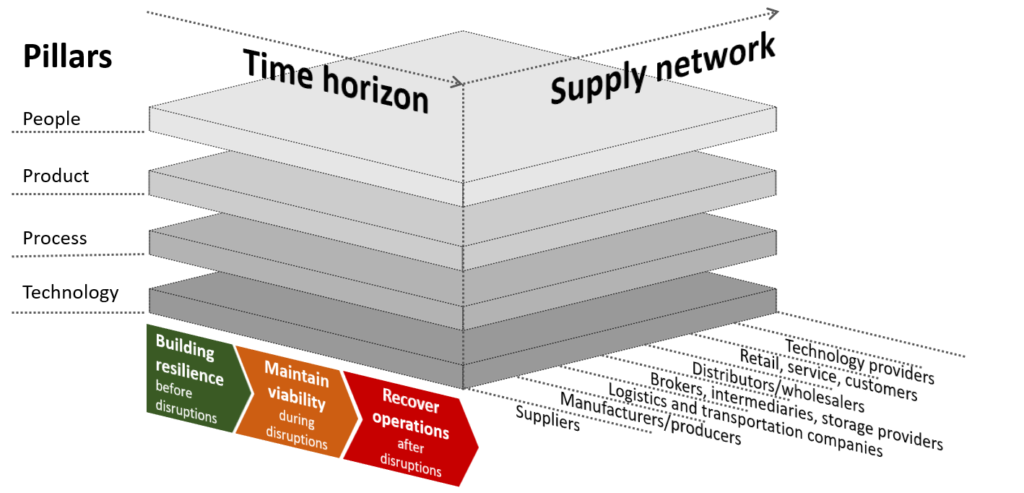
Work plan structure
